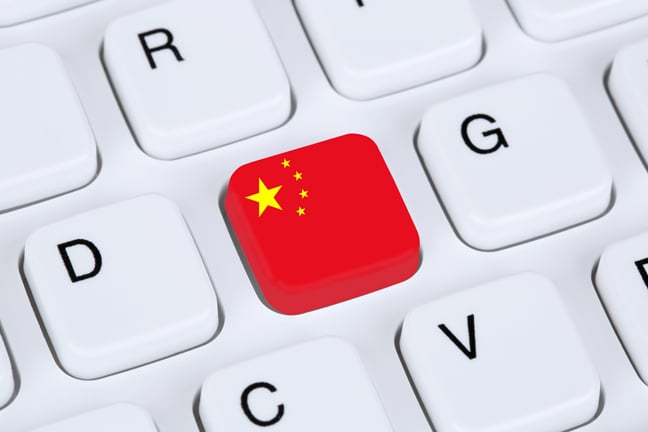Updated A UK Member of Parliament has called on government to review the purchase of a Cambridge-based fabless semiconductor biz which turns out to have been taken over by a Chinese organization with links to the state.
Alicia Kearns MP, Conservative representative for Rutland and Melton and Chair of the Foreign Affairs Committee, has written to Business Secretary Grant Shapps regarding Flusso Ltd, which was acquired for £28 million ($34 million) last year.
Flusso is a spin-off company from the University of Cambridge which develops digital flow sensor technology. It was acquired in August by “a company and a global private equity fund,” the identities of which were not disclosed at the time of the takeover.
However, official documents filed with Companies House, which maintains the official register of UK corporations, show that ownership of all shares in Flusso were transferred on August 11 to a special purpose vehicle known as Shanghai Sierchi Enterprise Management Partnership.
The South China Morning Post reports that Shanghai Sierchi Enterprise Management Partnership was officially incorporated in Shanghai at the end of 2021 and is 80 percent owned by Zhenxin Equity Investment Partnership based in Fujian province.
Furthermore, it turns out that Zhenxin Equity is a subsidiary of Baoding Investment, a company founded in 2000 that has both private ownership and is partly owned by the Chinese state, according to SCMP.
With this development coming to light, Kearns has written to Shapps, the Secretary of State in charge of the Department for Business, Energy and Industrial Strategy (BEIS), to raise concerns that the acquisition was not examined under the terms of the National Security and Investment Act (NSIA).
This Act of Parliament, which came into force last year, gives the UK government the power to scrutinize business transactions and potentially intervene on the grounds of risks to national security.
“This deal sees a British company, critical to our economic security and future prosperity, falling into the hands of an entity that was set up to serve the needs of a systemic competitor,” Kearns wrote in her letter which was posted on Twitter.
“Given the strategic criticality of semiconductors and the importance of the UK tech sector for self-sufficiency underpinning our economic resilience and R&D capabilities, please could advise whether the takeover will now be called in for review under the National Security and Investment Act,” she went on to ask, pointing out that companies are legally required to inform the government about “acquisitions that could harm the UK’s national security.”
We’re not sure whether flow sensors can really be regarded as equipment vital to national security, but Kearns seems to believe they are, writing that “having a UK company leading on the design and selling of flow sensors – key in consumer and industrial products produced by world-leading companies – being taken over by a Chinese entity represents a significant economic and national security concern.”
We asked BEIS for its response to this, and whether it intended to take any action such as reviewing the Flusso acquisition under the NSIA, and will update this article if we get an answer.
Any Chinese involvement with Western technology companies has become a hot potato ever since former US President Donald Trump began waging a trade war in 2019. The Biden administration has also ramped up its efforts to stop Beijing from being able to access advanced technology, purportedly to stop the Chinese military from getting hold of it.
The NSIA was controversially used last year to order that the takeover of semiconductor maker Newport Wafer Fab by Nexperia, now a subsidiary of Chinese outfit Wingtech Technology, should effectively be reversed on the grounds of national security. This decision is now being challenged in court by Nexperia.
It was also used to block the sale of Pulsic Ltd, an electronic design automation (EDA) company involved in the semiconductor industry, to Chinese outfit Super Orange HK Holding Limited. ®
Updated to add:
A government spokesperson has been in touch to say: ”While commercial transactions remain primarily a matter for the parties involved, the government routinely monitors acquisitions across the economy in case of national security concerns.
“The business secretary has powers under the National Security & Investment Act to intervene in acquisitions where necessary.”



